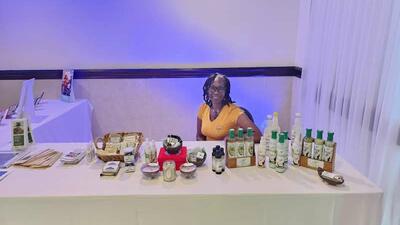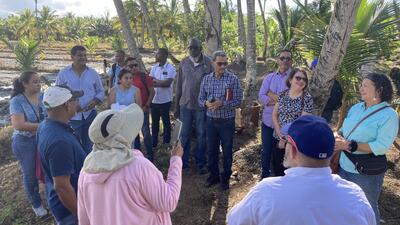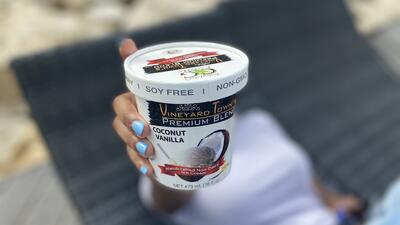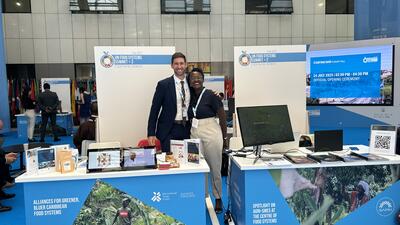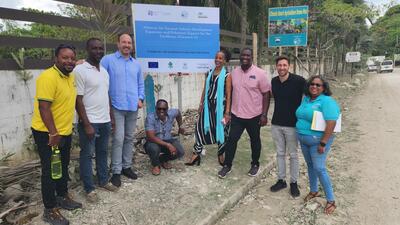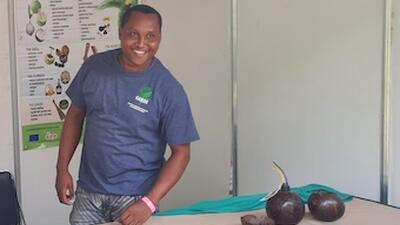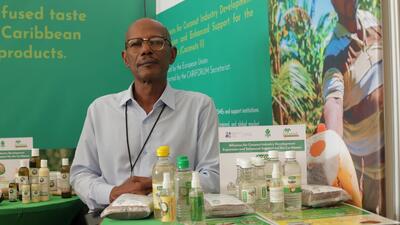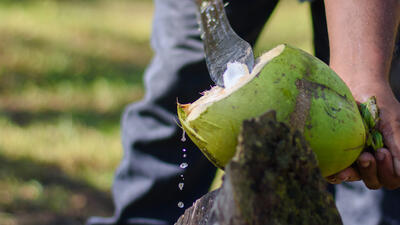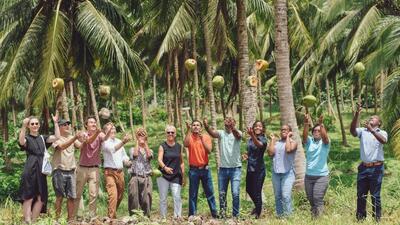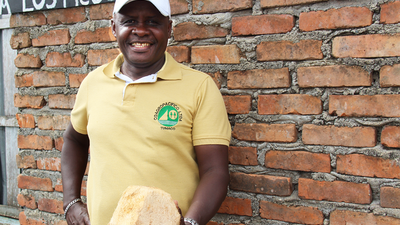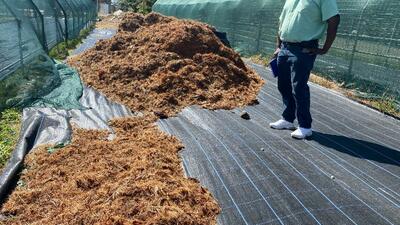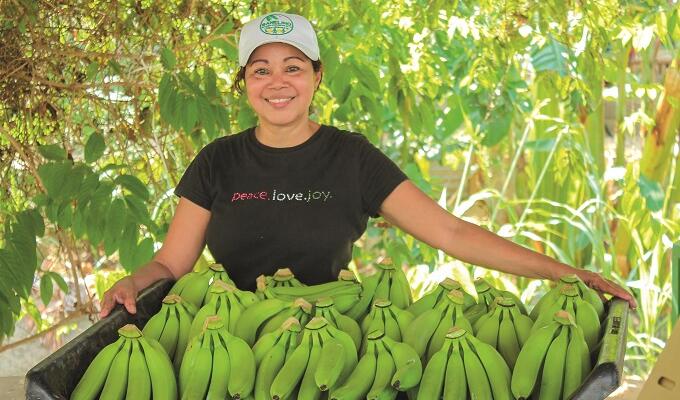
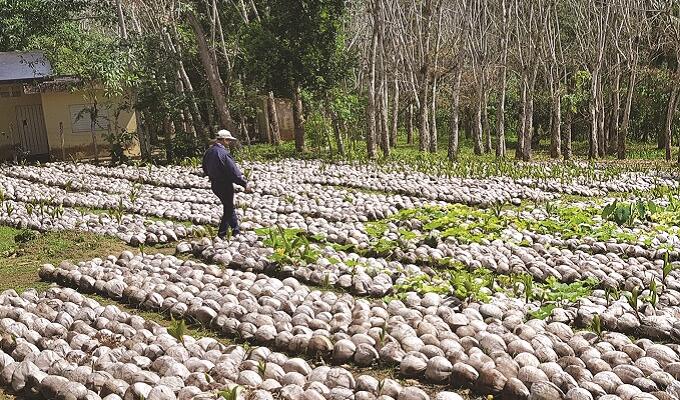
Answering the effects of climate change with organic coconuts
Farmers in the Dominican Republic have found a smart solution to respond sensitively to natural disasters – and secure their incomes
Maria Genao’s gaze is hopeful while scanning her four acres of fields, covered in banana and coconut palm trees.
‘When my farm was flooded, the coconut trees survived. For two successive years, our plantations were devastated by the strong winds and flooding due to the hurricanes that passed over the Dominican Republic. But coconuts have thrown us a lifeline,’ she says.
Maria is the lead farmer of Bananos Ecológicos de la Línea Noroeste, or BANELINO for short, in the northwestern province of Monte Cristi in the Dominican Republic. Since 2000, BANELINO has been a dynamic and successful organization of family farmers that produces Fairtrade organic bananas primarily for the export market.
Their success, however, had its fair share of challenges in recent years due to a changing climate: more flooding, droughts and hurricanes have caused extensive damage to the banana plantations. Addressing climate change and its impacts are high on the new sustainable development agenda of small island developing states. They are the most exposed and vulnerable to climate change effects, with people and communities experiencing dramatic repercussions. Taking urgent action that leaves no one behind is a priority.
Witnessing these impacts first-hand, the cooperative was ready for a sustainable answer to adapt to these climate risks — first step: diversifying crops by adding coconuts to mitigate risks and increase resilience.
‘Producing coconuts is not only improving our cash flow. It also supports the health of our soil and the biodiversity on our farms’, says Maria.
Using the lead-farmer approach, BANELINO met its target of 50% of members growing coconuts by the end of 2018, with unseen benefits: the training courses also included women and young people, who are often left out of skills development exercises because they are burdened with household chores or childcare duties.
But what is a lead-farmer approach? This participatory training and capacity-building method is based on peer learning and community-based knowledge sharing. The trained lead farmers, in turn, train other farmers in their communities, ensuring a domino effect to mainstream quality and improve agricultural skills across the sector.
‘As a lead farmer, I am especially eager to share my knowledge with other women in the community. This way they can embrace coconut production and participate in adding value to our products, such as handicrafts,’ explains Maria.
Ramon, a 78-year-old second-generation banana farmer, shares this enthusiasm: by adopting a mixed farming system, he feels comforted knowing that the three generations of his family working on the farm will have a stable, improved standard of living.
Investing in organic coconut production and value-added product manufacturing next to their traditional banana exports means an additional source of income for the farmers. Thanks to the diversification, they have the opportunity to produce multiple products and serve numerous markets. Market opportunities in the Dominican Republic are vast, as international markets increasingly demand fresh and value-added coconut products.
And BANELINO has shown it can seize these opportunities. As part of the International Trade Centre’s Alliances for Action network, the cooperative successfully received $125,000 to invest in productive capacities, including in building a coconut sugar-processing factory and purchasing more than 30,000 coconut seedlings from other Alliances partners. The loan came from the European Commission’s Banana Accompanying Measures, a support package for banana-exporting countries in the African, Caribbean and Pacific Group of States region.
As a result, BANELINO’s coconut production has been growing steadily since it kicked off in April 2018. A role model for the country and the Caribbean region, it has shown how to form productive, commercial and financial alliances that boost income and resilience by linking banana and coconut value chains.
Alliances for Action stands for strategic alliances between farmers and stakeholders across the coconut value chain – strategic both in terms of technical support and in terms of market linkages.
By joining the Alliances for Action network, BANELINO benefited from technical assistance – including coconut G.A.P. (Good Agricultural Practices certification) and seed multiplication – as well as market and business support to engage in diversification strategies while strengthening the farmers’ resilience to climate change effects.
The initiative is part of the second phase of the Coconut Industry Development for the Caribbean project launched in 2015 and funded by the European Union and the African, Caribbean and Pacific Group of States– and now also CARIFORUM for Phase II of the project. The International Trade Centre implements this project jointly with the Caribbean Agricultural Research and Development Institute.




